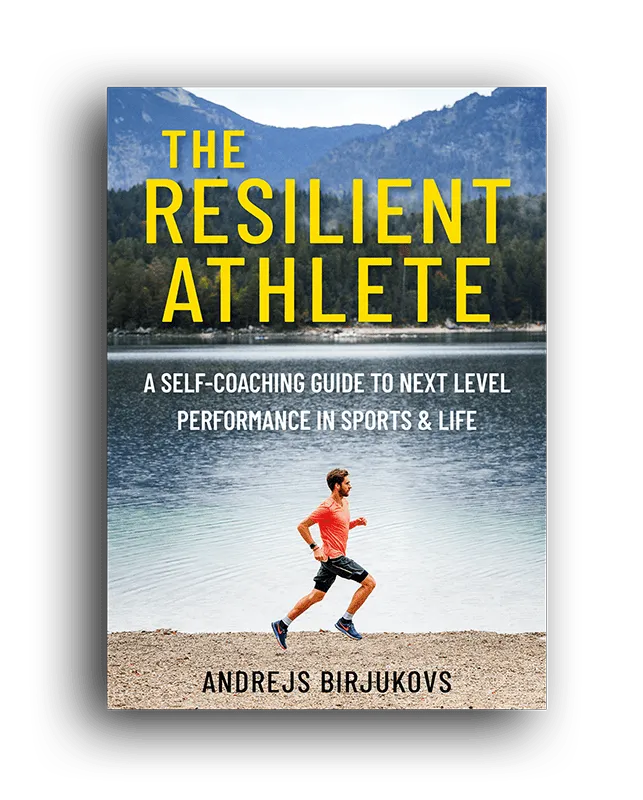How To Beat Mental Fatigue (And Why “Feeling Off” Isn’t Only Physical)
When I first started my wellness journey, I was told that rest is critical. Friends, trainers, and peers alike told me that recovery days are just as important as active days. In almost a decade of training, the single thing that I continuously heard was how I should listen to my body.
On the flip side, I was never told to listen to my mind. Despite the fact that fitness is just as much mental as it is physical, it almost seemed taboo to discuss “feeling off” in any other sense than physically. This led me to push my own boundaries for fear of being called weak or unmotivated. I worked out as my mind wandered and I pushed myself even when all I wanted to do was take a break. Every day, I forced myself to believe that this was just “all in my head”. But it wasn’t that simple.
Mental fatigue and the taboo of depression
The undeniable truth is that mental health conditions are very real. In fact, the WHO estimated that over 280 million adults experience some form of mental health disorder. That includes conditions like depression or anxiety. Still, despite recent medical data showing that mental health conditions are real, people often trivialize them. Moreover, people are shunned or judged for these conditions.

In the workplace, 54% of employees have said they don’t feel safe talking about mental health because they think others will judge them. Among students, only 15% felt comfortable enough to seek school-based counselling.
In the world of fitness, athletes often brush aside warning signals as simple jitters or fatigue. On the few occasions I would open up to coaches about my struggles, I got a response to “sweat it out”. As if another session would simply clear up my problems.

The Resilient Athlete
A Self-Coaching Guide to Next Level Performance in Sports & Life
Are you aiming to become a resilient athlete who is able to withstand any pressure? Be able to jump on any opportunity? Take any challenge life throws at you head on?
Then this book is for you.
Learn moreThe relationship between mental health and fitness
In a way, I understand this line of thinking in fitness. After all, there’s lots of evidence that proves exercise is beneficial for mental health. As noted in Knowable Magazine, exercise has been proven to have the same positive effect as antidepressant drugs. What’s more, because exercising urges the brain to release more happy hormones like endorphins and dopamine, the effect is almost instantaneous. In all fairness, I have experienced these benefits time and time, again. Fitness really does wonders to the body inside and out.
But this doesn’t mean that anyone who dabbles in fitness is immune to mental health conditions. Despite what the media and other athletes may say, you can’t just solve everything with more exercise. And you’re definitely not a failure for acknowledging this.
World-class athletes think so too. As shared on SymptomFind, Olympian Simone Biles and world number one tennis star Naomi Osaka are two such examples who’ve publicly prioritized their mental health. In the last two years, both women backed out of major sporting events due to mental fatigue. Personally, and for scores of people in similar situations, seeing two women at the top of their fields breaking this unspoken barrier was comforting. Their actions emphasized the importance of listening to your mind—and that we still have a long way to go in normalizing mental health concerns in fitness.
How can we reduce mental fatigue in fitness?
For starters, let’s keep talking about it. The more we sweep it under the rug, the more its negative effects may compound over time. It may not be easy, but gentle – yet consistent – conversation will allow others to understand the struggles and needs of those with mental health concerns.
Develop emotional resilience
At the same time, we should also be mindful of others. To do this we need to avoid toxic positivity. An article on Forbes explains that toxic positivity can be gaslighting and demeaning. Instead of just saying “cheer up” or “don’t worry”, we should help others achieve emotional resilience. It’s is a more sustainable way to control mental fatigue and make an impact on fitness as well. When you’ve cultivated an environment that supports controlling your emotions, you and those around you can better manage mental health hurdles.
It’s in everyone’s best interest to start addressing the mental side of “feeling off”, too.
Mental health is not inferior to physical health. To succeed at one, you must equally prioritize the other. Among athletes, this is especially pronounced given the mind-body connection we need.
Of course, even after we’ve had the conversations and started practicing more mindful and encouraging behaviour, there’s still more that can be done. If you’re still struggling with mental fatigue, below are more ideas you can apply.

Schedule in wellness days
As athletes, we often plan our workouts meticulously but leave more to chance when it comes to wellness activities. But these more “relaxed” activities deserve to be just as prioritized considering their holistic benefits. So, if you’ve been craving a massage or if you’ve been debating taking that staycation, do yourself a favour and pin it down. This will “force” you to take time for yourself and it will ensure that no other activities will “distract” you from rest.
Find a hobby outside of fitness
Even if health and fitness is your passion, it’s good to diversify your interests. This way, you’re less likely to be burned out or overwhelmed with one endeavour. To do this, try to find activities that cater more to your artistic or psychological side. Think pottery, painting, or even puzzles. In this way, you can stimulate more sides of yourself whilst also ensuring that you’re not just always tied to fitness. These hobbies can also provide you with much-needed mental breaks from your usual grind.
Read also: Burnout In Sports – 20 Ways To Detect, Overcome & Prevent It
Start an honest diary
It can be hard to track your emotions and thoughts, especially through stressful situations. Training diary can be a great way to notice approaching burnout. With a diary, you can literally pinpoint the highs and lows you may be experiencing. When consistently done, this can provide you with insight into your triggers and coping mechanisms. Over time, reviewing this diary can help build mental and emotional resilience.
In closing, it’s in everyone’s best interest to start addressing “feeling off” mentally, too. Mental health is not inferior to physical health. To succeed at one, you must equally prioritize the other. Among athletes, this is especially pronounced given the mind-body connection we need. Today, my mental health challenges are not completely gone. Honestly, I don’t know if they ever will be. But what I can say with all certainty is that when I finally received recognition and support from my peers, my overall health and my fitness journey began to look brighter once more.
Alina Oliver
Alina Oliver is an aspiring sports blogger with a passion for following those at the top of their game. She hopes her articles inspire other people to aim high. In her free time, she plays tennis.
Tags In
Related Posts
Leave a Reply Cancel reply
GET A FREE TRAINING PLAN
Subscribe to my email list and get access to a free 4-week “back in shape” training plan
You’ll also get two full-body strength sessions and some other goodies!

How did I get here?
Hey there! My name is Andrejs and I am here to inspire, entertain and get you fit for any adventure.
I went from being an over trained pro athlete to an endurance coach sharing how to listen to your body and live life to the fullest.
Traveling, new sports & activities brought new meaning to my training and made it much more effective, fun and enjoyable. And I'm here to help you do the same.


